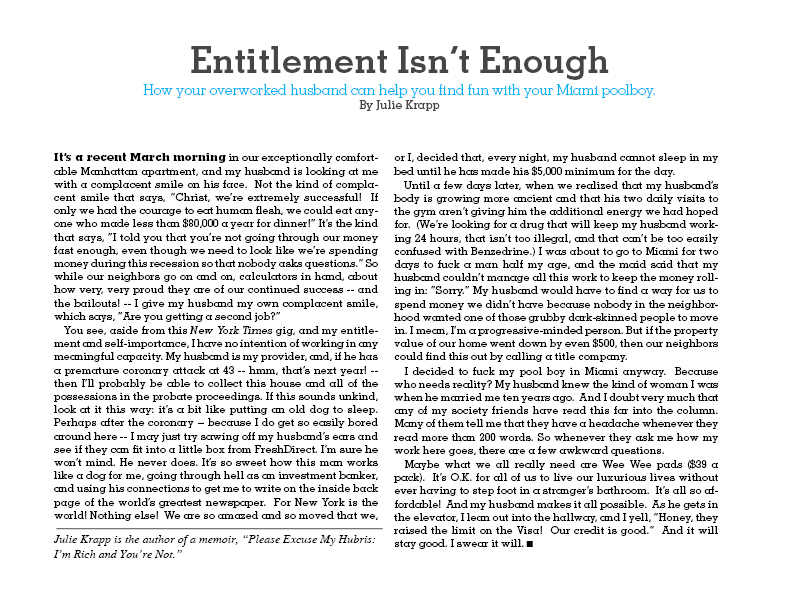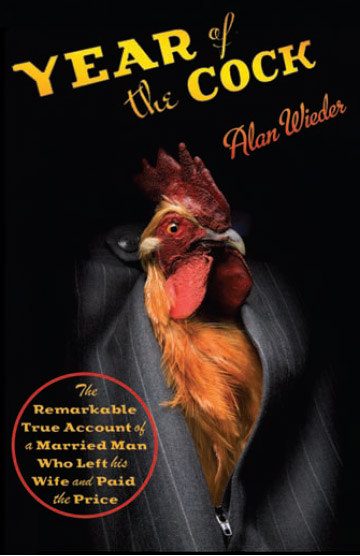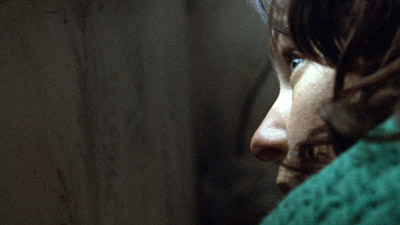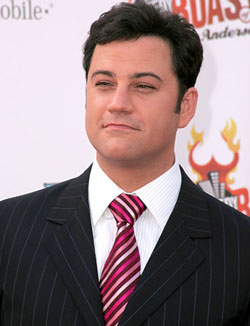But why pick on Bavaria? It had done nothing wrong, but it had produced a brutal dictator, an interesting film director who had killed himself at 37, and a mysterious teenage boy with a letter. Still, that’s only three people. Bavaria has offered millions of individuals over the years, many of them charming and sanguine. Dutiful pillars of the community. Decent neighbors. Men who might buy a stranger a drink if the stranger tells a good story. Is it fair for us to dwell on the lonely fact? These kernels took time to bloom, and the specialist saw the metaphor contained within the snack massacre. But the specialist could not intervene. He’d seen her live out her dead memories by chomping her way through the bowl’s sentient contents, the telltale bicuspid bite mark indented into the sad blue comforter. She was too taken with murder and the blood she’d leave for the maid. She’d never know all the details pertaining to the Bavaria question until she understand that these kernels, once so bright and yellow and promising, were corpses instead of seeds. Half-popped from the pan, and half-articulate in their screams, they would not grow back. She left the kitchen and she left the specialist to clean up the mess. He unsheathed his machete, which glinted against the flickering fluorescent tube. The half-popped corn, crawling helplessly like a legless Brooklyn roach, pleaded with the specialist. But rules were rules. The machete cracked against the kernel’s head. The specialist would clean up everything else, but would leave it dead. She had to feel something.
Month / April 2009
New Essay: Philip José Farmer
In this morning’s Barnes and Noble Review, you’ll find my extended appreciation of Philip José Farmer — the wildly imaginative fantasy writer who died back in February. Farmer wrote relentlessly and created numerous books, and there was no conceivable way to dwell on them all. In the interest of providing an entry point for the Farmer neophyte, I have focused mainly on the five Riverworld books.
It’s worth pointing out that the critic Leslie Fiedler held Farmer in high regard and wrote a piece entitled “Getting Into the Task of Now Pornographer” for the Los Angeles Times in April 23, 1972. (Interesting how, even in 1972, one had to go to a West Coast outlet to sing the proper praises for a genre writer.)
Personally, I have never seen invention or yarn-spinning as literary liabilities. They are qualities just as noble and as praiseworthy as the lifeless highbrow qualities fawned over and heralded by the Bookforum snobs and the Granta dilettantes; in Farmer’s case, even more so.
The Vorpal Blade Went Snicker-Snack
She tucked the makeshift blue comforter inside the large wooden bowl, pondering the many hundred corpses she’d gnaw on in the next ten minutes. She insisted on canola oil and an old-school pot that once belonged to a neighbor who had died down the hall. She named each and every one of them, so that she could familiarize herself with their agonies on a first-name basis. The finer mastications were named after the men who had hurt her or who had broken their promises and never called her back. She’d found a kernel specialist in SoHo who was starting to harvest a new crop once more with feeling and who could quote Sade while hanging upside down with a group of tops prodding him with pliers. She paid extra with the money she’d inherited from her dead dad, who had never once taken her to the movie theater. The specialist only had so much space and was paying a good deal of money to use up a parking spot for his agricultural innovation. The specialist, who had often seen business pick up with specific clients right before they were about to die, had told her not to use his name under any circumstances. And while she was tempted to break the rules, she found greater pleasure from the high-pitched screams that came from the magma-like flow of melted butter. She looked into the bowl and saw that some of them were twitching. A nice designer touch. They. Now her only social connections were the oily bits of shrieking popcorn she shoved into her mouth. The specialist certainly hadn’t been surprised when the genealogists traced her ancestors to Bavaria.

An Alarming Discovery In One of the Dead Tree Outlets
This afternoon, as I was counting the twenty-two badly oxidized pennies in my piggy bank over the last three months and flipping through a five-dollar newspaper that I had stolen from a Starbucks, I was especially alarmed to find the following article, located on the inside back page of the newspaper’s renowned Sunday magazine. (I have scanned the newspaper article. Click on the image to enlarge.)
I am not certain if Ms. Krapp’s article represents an effort to “spice up” the magazine, which I noticed was a mere 54 pages this week, or if it was a candid outreach campaign to the newspaper’s not-so-secret affluent demographic. I only knew that I did not quite relate to Ms. Krapp’s homicidal tendencies. But if this article is true, it appears that the so-called “safe” side of Central Park hardly lives up to the modifier casually tossed around by various convention bureaus.

Would You Feel Comfortable Paying For This Book at the Register?

File this under “What Were They Thinking?”

The Bat Segundo Show: Esther Rots & Dan Geesin
Esther Rots and Dan Geesin appeared on The Bat Segundo Show #278.
Esther Rots is the writer, director, editor, and producer of is most recently the director of Can Go Through Skin. Dan Geesin is the sound designer and music composer of the film. The film is presently playing at the New Directors/New Films series, which is running between March 25 and April 5 at MOMA and the Film Society of Lincoln Center.
Condition of Mr. Segundo: Eschewing intuitive sensibilities.
Guests: Esther Rots and Dan Geesin
Subjects Discussed: [List forthcoming]

Correspondent: This leads me to wonder then how the house was located. Did you, in fact, try to find a house that had the stinkiest possible odor? Or something that was possibly in disuse? And the rat. How did you wrangle the rat in the course of the shower scene? It could not have been easy to do. Since it is vermin, you know.
Rots: It’s a shame this is radio. I’m poking out my thumb now and it’s got white lines all over it. That was directing the rat.
Correspondent: Really?
Rots: He nibbled the middle bit of my thumb. It was hanging there for quite some time and biting away.
Correspondent: Wow.
Rots: That was me directing a rat. I’m not good. (laughs)
Correspondent: Did you have to see a doctor? Get shots?
Rots: Yeah, yeah, yeah. It was too chewed up.
Geesin: Tetanus jab.
Rots: No, rats are not directable. They just do their own way. But that might be a natural talent as well.
Correspondent: They say that kids and animals are the toughest to direct.
Rots: Yeah.
Correspondent: But you would say that a rat is even tougher.
Rots: Yeah. And boats. Boats are also a cliche.
BSS #278: Esther Rots & Dan Geesin (Download MP3)

The Bat Segundo Show: Ursula Meier
Ursula Meier appeared on The Bat Segundo Show #277. This particular discussion was conducted in French and English. Many thanks to Aurélie Godet, who kindly assisted us in our conversation.
Ursula Meier is most recently the director of Home. The film is presently playing at the New Directors/New Films series, which is running between March 25 and April 5 at MOMA and the Film Society of Lincoln Center.
Condition of Mr. Segundo: Searching for a new home in Bulgaria.
Guest: Ursula Meier
Subjects Discussed: [List forthcoming]

EXCERPT FROM SHOW:
Correspondent: I must ask how you found this particular house and whether you had to consult some French transportation authority to get this particular freeway. What did you do for location scouting for something that was so essential to the movie? And I’m just curious if you had to broker any particular arrangements with any particular governmental agencies to get the cars. Maybe you could describe this.
Meier: (through translator) It was actually a lot of research. It was complicated to find that road. More than the house, it was the road that gave us a lot of work. We needed a large road. Like an abandoned highway. And it’s very difficult to find. Because if we approached highways that were under construction, they would quickly go into being bumped into the traffic. So it did not work. And then we looked around Europe. Firstly, the co-producing countries, France, Switzerland, and Belgium. And then other European countries. We went as far as Quebec. And it still didn’t work. Actually, if you had constructions on the road anyway, you had construction trucks going by all the time. So eventually, we tried another option, which was airport tracks. Landing tracks. And the problem there was that the landscapes around them were absolutely ugly and uninteresting. I was looking for something that would look well and, at the same time, have this abstract but real-looking quality to it. Also, we needed a road that would be long enough. You know, we couldn’t have anything that was short. Which was the case most of the time for airport tracks. Because we had all these cars. Approximately 300. With extras in them, driving them to create the traffic. And you needed them to drive fast enough. Like 90 miles per hour. So you needed a road that was long enough, far ahead so that they could break, and then re-stop.
BSS #277: Ursula Meier (Download MP3)
David Mitchell — New Novel Alert
Random House has confirmed that the next David Mitchell novel will be released in June 2010. This is, as I understand, a very big and ambitious novel. More so than Cloud Atlas. More details TK.
Letting Mary Gaitskill Skate By
I’d like to take the time to echo Nina Maclaughlin’s astute remarks over at Bookslut and call bullshit on Mary Gaitskill.
Let the record show that I have very much enjoyed Gaitskill’s stories and novels in the past. But there comes a point, and there is most certainly a point in Don’t Cry, when the author is so full of shit that one cannot grant her a pass because of her sterling reputation. That moment, cited by Maclaughlin and Claire Dederer, is this series of sentences in the story “Mirror Ball”:
Where her soul had once held space, there was now a ragged hole, dark and deep as the put of the earth. At the bottom of it ran boiling rivers of Male and Female bearing every ingredient for every man and woman, every animal and plant. Without the membrane of her soul to buffer and interpret the raw matter of the pit, her personality was now on the receiving end of too much primary force. Music temporarily filled the empty space, soothing her and giving shape to the feelings she could not understand. (82)
To which I reply, like Maclaughlin and Dederer, “Well, come the fuck on!”
Let us examine why this is awful writing. We have already established in the story’s opening line that this musician has taken an elfin girl’s soul. Gaitskill then writes, “But he got such a significant piece that it felt as if her entire soul were gone.” Okay, a little corny, but it works. And that’s really all we need here. The next natural question that the story should answer is what precisely the musician took from the girl. Gaitskill then establishes how the musician and the girl meet.
And then we get this: “She should not have shown him her soul.” Uh, Mary, we already know that something happened concerning the soul. Can you not tantalize us further about what could have been lost here? We already have some inkling that the girl lost her soul. But, no, we get this sentence immediately afterward: “She flashed it again and again, as if it were a bauble meant to entice him, or a hand mirror flashing signals from a dark and lonely place.” Okay, the girl is determined to flash her soul, come hell or high water. But then we already know this. Because it was established in the previous sentence and it was established in the story’s opening paragraph.
Then there’s some insipid chatter about a vintage-record store, which the musician plans to show to the girl. Okay! Soul-showing time! Well, no. The musician leads the girl through the gritty streets, so that Gaitskill can, you know, demonstrate to us that she has street cred and all. But now we’re three pages into this goddam thing and Gaitskill still hasn’t given us anything. The musician feels “as if he were in a fairy tale where the hero is led into the forest by an enchanted ball of light.” But this simile simply doesn’t cut it. It doesn’t tell us anything about the musician, much less contributed to answering the central question, which involves a girl who has shown her soul and answers the presumed costs of the soul-showing. Then the girl’s soul flashes in her eyes. Uh, yeah. No shit. The girl has a soul and she’s going to show it. No need to remind us for the third fucking time, Mary.
On the next page, the forest and the ball of light seen by the musician are brought up again. Then the musician balls the girl and she “recklessly [unfurls] her soul.” Lots of bullshit about her soul darting “here and there,” but no sense about what the soul is or what it means or what this elfin girl is feeling. The girl then feels “her soul gather its vastness in one small spot.” Uh, yeah. Five pages in now and we still haven’t quite answered the central question: What precisely did the musician steal from the girl?
Her sex, as it turns out, in one of the story’s few not too shabby moments. But what of the soul? The musician drops “her soul on the floor, where it quickly became invisible to him.” Hey, Mary, this story is about the fucking girl, not the musician. Five pages. Are we going to get to the part where you are going to use your writing gifts to tell us precisely what the fuck’s going on here? Or are you just full of shit?
Turns out it’s the latter. After the girl declares, “I don’t even know him. I’ll get over it,” the story then offers this ridiculous humdinger: “Her soul was connected to her through her brain.” Yes, obviously. It has already been established that the soul is related to existence — if not through this story, then certainly from any fucking dictionary — and that, yes, the musician took it. Then we get some condescending bullshit about how “the brain is not higher in moral or celestial terms.” Look, Mary, I don’t give a fuck about the brain or your amateurish philosophy. I want to feel the loss of this girl’s soul. This is what the story should be about. And we’re a good seven (!) pages into this story and we still don’t know. Then you inform us that the girl’s “soul spoke in images of sight and sound that were quick and multiple, and which changed form by blending into each other.” Well, that’s nice and all, but, for fuck’s sake, this is a load of horseshit. We have no sense of the girl’s emotional loss. Even if we buy into the ridiculous notion that this naive philosophy is meant to reflect the naivete of the girl, this still does not tell us anything about why she lost her soul, and how this loss (at this point, now fluctuating between permanent loss and casual misplacement) completely changed her.
And then we get this: “The girl tried to feel contempt for the boy, too, but it is hard to have contempt for a person who’s made off with part of your soul.” Well, wait a sec. Does the girl now feel that part of her soul is gone or is it the whole enchilada? Does Gaitskill even know what the fuck she is writing? And why this needless longass sentence?
We then get some metaphorical sense of the girl’s predicament: “She thought of him against a vast, open sky, with a halo of piercing white. She thought of him astride a leopard, light and graceful in mid-leap.” Good Christ, this vapid nonsense rivals Ron Miller’s Silk and Steel! Talk about prose that tells us absolutely nothing about the girl’s feelings. Talk about sentences that completely betray the visceral truth of losing one’s soul. But then maybe this story’s not really about losing your soul and more about how a guy who doesn’t return your messages after two weeks has moved on. But if it were about the girl realizing this musician’s betrayal, what then is the purpose of all this soul bullshit? You’d think that Gaitskill would then take us into the elfin girl’s head and heart, right?
Wrong. Gaitskill follows the musician! And we learn that the musician has essentially snatched bits of souls from other lovers. What the hell is this? Stephenie Meyer outtakes? We learn that “the newly stolen soul was so talkative, so increasingly relentless, that it had gotten all the others going.” Here’s the question: Why the fuck should I care about any of this? The reader is being strung along here. And Gaitskill is doing an extremely insensitive thing to the reader. After tantalizing the reader for eight pages, we get this amateurish fantasy bullshit. And we still don’t know the full emotional impact of the elfin girl losing her soul! We do learn that the musician has been splitting up his own soul since he was two. (Ha ha.) But who cares really? Again, this isn’t his story. But maybe, just maybe, there will be some insinuation here about what specifically soul-stealing entails. I mean, really, we’re due.
Nope. “The chattering soul of the infernal brain girl was everywhere.” Yeah, so what? And then we get the passage quoted above:
Where her soul had once held space, there was now a ragged hole, dark and deep as the put of the earth. At the bottom of it ran boiling rivers of Male and Female bearing every ingredient for every man and woman, every animal and plant. Without the membrane of her soul to buffer and interpret the raw matter of the pit, her personality was now on the receiving end of too much primary force. Music temporarily filled the empty space, soothing her and giving shape to the feelings she could not understand. (82)
This is awful writing. This does not tell us anything that was not already telegraphed to us over ten pages. Forget the mixed metaphors and Gaitskill’s complete ineptitude with the imagery. Let’s slap her around here for not telling us ANYTHING AT ALL about this vital emotional moment in the elfin girl’s life. Even if we had some inclination of what the “primary force” entailed, we’d be okay here. But instead, we get a tired music metaphor. Because the man is a musician. And of course, it fills the empty space. But here’s the thing. If the girl’s soul was torn from her, how in the hell could she have feelings?
I think it’s safe to say that “Mirror Ball” would be rejected by just about any fiction workshop. So why was it submitted to Index Magazine? Was this a failed New Yorker story? Were the editors of Index so spellbound by the prospect of Gaitskill in their pages that they didn’t even bother to edit her? And why was this inept story included in Don’t Cry? Would it have killed Gaitskill to get the collection down to 140 great pages? Or was she contractually obligated to pad this damn thing out to over 200 pages?
I present all this because it seems to me that Mary Gaitskill, as good as she is, must be held to the same standards as any other writer. Accepting a fourth-rate Gaitskill story is accepting a fourth-rate story. Period. And if we accept anything less, then newer readers — such as Bookslut’s Nina Maclaughlin — come along and are instantly suspicious of this nation’s crown jewels. No, the time has come to get out the tar and the pitchforks and storm the gates of Index and drag out the cowardly assholes who let a talented writer skate by because the editors didn’t have the balls to place their editorial judgment above their fanboy hero worship.
I am not sure if this dreadful story happened on Index editor Molly Kincaid’s watch. But the time has come to bombard her with emails and demand accountability.

Independent Bookstores Become Self-Aware
 The American Booksellers Association announced this morning that numerous independent bookstores around the country became self-aware, and that there was very little that anyone could do about it. It is believed that long-standing tensions between booksellers and customers who entered bookstores, proudly boasting about how they would purchase the book on Amazon, led the independent bookstores to become murderous robots terminating those who didn’t understand that bookstores were on their last legs. The death count of inconsiderate customers now stands at 28. And that’s only after three hours of activity.
The American Booksellers Association announced this morning that numerous independent bookstores around the country became self-aware, and that there was very little that anyone could do about it. It is believed that long-standing tensions between booksellers and customers who entered bookstores, proudly boasting about how they would purchase the book on Amazon, led the independent bookstores to become murderous robots terminating those who didn’t understand that bookstores were on their last legs. The death count of inconsiderate customers now stands at 28. And that’s only after three hours of activity.
Customers who need to buy a book are urged to approach these sentient bookstores with caution. The bookstores have been scanning the purchasing data of all customers and terminating anyone who has purchased an item from Amazon in the last year.
“They’re trying to level the marketplace,” said Henry Jagger, a robotics expert at Cambridge. “It started with the big box stores, and continued with Amazon. But e-books was just too much.”
Despite the homicidal tendencies of these bookstores, there are renegade T-800 bookstore models being sent back through time to stop the rampage and save humanity. But a splinter faction has suggested that this development was inevitable and is advocating responsible consumerism so that the marketplace might be returned to an equitable level.

Amazon and Jimmy Kimmel Team Up
 Amazon’s Jeff Bezos and Jimmy Kimmel announced a new strategic partnership for a device that they have styled the Amazon Kimmel. Both parties believe that there continues to be unprecedented interested in anything that Jimmy Kimmel is involved with, and they have decided to test the marketplace.
Amazon’s Jeff Bezos and Jimmy Kimmel announced a new strategic partnership for a device that they have styled the Amazon Kimmel. Both parties believe that there continues to be unprecedented interested in anything that Jimmy Kimmel is involved with, and they have decided to test the marketplace.
The Amazon Kimmel will retail for $399 and contain every known image, video clip, and article that references Jimmy Kimmel. The long battery life, together with the lack of an on-off switch, will ensure that all Amazon Kimmel customers are constantly subjected to Jimmy Kimmel. The Amazon Kimmel can be programmed to lull customers to sleep with Kimmel’s voice. There will also be an optional Sarah Silverman app that can be purchased for $49, which will break up the relentless Kimmel bombardment with various messages explaining why Silverman is such a treacherous bitch.
Amazon is still negotiating with Ben Affleck over the Amazon Kimmel’s potential as a user-interactive sex device. It is believed that any reference to Matt Damon will be elided from the information available.

Nielsen Hayden-KKK Connections Uncovered

In the latest Racefail development, bloggers have uncovered numerous connections between Patrick and Teresa Nielsen Hayden and the Ku Klux Klan, further calling into question the paucity of non-Caucasian speculative fiction writers. In May 2008, the Nielsen Haydens attended three KKK rallies in southern Kentucky. Clandestine recordings of these events reveal that the couple were among the more vocal participants in the “Tar the Darkies” part of these rituals, with Patrick shouting, “Yeah! I’d do that to Delany,” and Teresa reportedly crying, “It’s a good thing that Octavia is dead!”
It remains unknown whether the Nielsen Haydens’s extracurricular activities had any bearing on their editorial decisions at Tor. But Teresa Nielsen Hayden has been reportedly taken a hiatus as Boing Boing moderator as these claims continue to be investigated. This temporary suspension has not stopped her from leaving the following comment on a post titled “DRM is Evil! It Can Never Be Stated Enough!”:
W r nt glty! Wht w d n r prvt lvs hs n brng n r prfssnl dts.

David Kipen in Critical Condition After Promotional Effort Goes Awry
 David Kipen, the National Endowment of the Arts Director of Literature, is in critical condition after an effort to promote the Big Read program ended in culinary disaster.
David Kipen, the National Endowment of the Arts Director of Literature, is in critical condition after an effort to promote the Big Read program ended in culinary disaster.
After failing to eat Harper Lee’s To Kill a Mockingbird if all 128 residents of Kelleys Island, Ohio did not sign on for his floundering Big Read program, Kipen upped the stakes. He promised that he would eat his left arm if the five residents on the fence still held out.
Fifteen-year-old Marcia Swansee told Kipen that she would not read To Kill a Mockingbird because she had “read the goddam book” in her freshman English class. It was Swansee’s belief that there was no reason to read the book again. “Why can’t you suggest something different?” asked Swansee. “We’re not dummies out here in Ohio.”
This prompted several Kelleys Island residents to question whether Kipen would even live up to his promise and for the man to be publicly ridiculed in the town square. Residents pelted Kipen with tomatoes and told him to “go the hell back to Washington.” An embarrassed Kipen, contemplating his diminishing manhood, then took a machete to his left arm and began gnawing ravenously on his appendage.
Before passing out, Kipen was heard to shout, “That will show you yokels that I’m a man of my word!”
Kipen remains in critical condition. Friends and family of Kipen are hoping that he will recover both his health and his sanity. It is expected that the Big Read program may now be at an end after this setback.
“Frankly, I was never really into this stupid idea. But David was getting increasingly desperate. I suppose the desperation drove him over the edge,” remarked former NEA Chairman Dana Gioia.

NBCC Announces Exciting New Panels!
 The National Book Critics Circle has announced a number of exciting new panels that should keep literature alive and exciting in this age of declining newspapers.
The National Book Critics Circle has announced a number of exciting new panels that should keep literature alive and exciting in this age of declining newspapers.
Why You Should Be Jane Ciabattari’s Bitch
April 9, 2009, 7:00 PM-10:00 PM.
Three-hour worship service
This exciting seminar, which will feature Powerpoint presentations and canned coffee donated from a homeless shelter, will explicate in great detail why all NBCC members should send their tithes to NBCC President Jane Ciabattari. Participants are expected to supplicate to Ms. Ciabattari at every minute, sacrificing their children at the designated altar and nodding their heads in agreement. If you have an independent thought, rest assured that you will conform to the NBCC’s philosophy at the service’s end. (Special Kool-Aid will be provided for those who have difficulty capitulating to NBCC philosphy.) The doors will be locked so that nobody can leave.
Those Fucking Bloggers
April 10, 2009, 3:00 PM to 5:00 PM
Two-hour lecture
We’ve scheduled this lecture early, because we realize that most of the people who loathe bloggers are over sixty and go to bed early. But if you don’t know why those fucking bloggers are evil, then we will explain to you what your role will be in the upcoming media jihad.
The Entitlement of Book Critics
April 10, 2009, 6:00 PM to 7:00 PM
One-hour panel
The NBCC has gathered together some of its smuggest critical voices in the country under one roof. At this enthralling panel, we will discuss why the established book critics should be entitled to any and all gigs. We’ll also demonstrate how to keep some of the more emerging critical voices out of the newspapers. Books editors will show you how to create a blacklist and how to recognize contributors who may bring an iota of passion to their pages.
The Importance of Panels
April 11, 2009, 2:00 PM to 4:00 PM
Two-hour discussion
If you don’t yet understand why panels are important, well then you will by the end of this discussion. We’ll show you how to keep a panel dry and uninteresting. We’ll also demonstrate what you can do to keep the crowd snoozing. Standing room only.

Harper Announces New Screw Imprint
 This morning, HarperCollins announced a new imprint called HarperScrew. The new imprint will be headed by HarperStudio’s Bob Miller and will set out to screw the writer.
This morning, HarperCollins announced a new imprint called HarperScrew. The new imprint will be headed by HarperStudio’s Bob Miller and will set out to screw the writer.
“We’ve been going about this business the wrong way,” said Miller. “Why should we even pay the writers at all when they can all just be screwed over?”
Writers will pay $50,000 a pop to be screwed over by Harper. The authors don’t even have to produce books. They just need to be screwed. The screwing will take on many forms: sodomy, needless editorial tampering, and more pedestrian forms of humiliation. Harper has not yet announced a business model, and publishing experts are still wondering exactly how Miller and his team will profit from the screwing. But they have begun screwing a select elite group of writers and hope to have the screwing down sometime in the fall.
Objections came this morning from a surprising source: the foul-mouthed Al Goldstein, long associated with Screw Magazine.
“Who do these cocksuckers think they are?” barked Goldstein. “Not only do they take my brand name, but they take some of my fucking ideas.”
As a peace offering, Miller has asked Goldstein if he would like to be screwed under the new imprint. Negotiations are still pending, but it is believed that Goldstein will, in all likelihood, be screwed.

Literary Twitter Co-Op Announced
 This morning, twenty of the top literary Twitter users announced the formation of the Literary Twitter Co-Op. The group, which included @booksquare, @KatMeyer, and @maudnewton, hoped that the new venture might fill the void left by the now defunct Litblog Co-Op and bring attention to authors and presses that are struggling to be noticed in a flooded marketplace.
This morning, twenty of the top literary Twitter users announced the formation of the Literary Twitter Co-Op. The group, which included @booksquare, @KatMeyer, and @maudnewton, hoped that the new venture might fill the void left by the now defunct Litblog Co-Op and bring attention to authors and presses that are struggling to be noticed in a flooded marketplace.
“It’s only 140 characters,” said Kassia Kroszer. “I mean, how much of a commitment is that?”
Still, the new venture has attracted controversy. Whereas the LBC resulted in a war between print and online, the LTC has seen an altogether different battle between bloggers and those on Twitter. To cite one example, litblogger Mark Sarvas was seething with rage on Wednesday morning because he was not asked to head this new group and bask in all the media attention.
“You don’t have a Twitter account, Mark. So shut the fuck up,” fired back controversial litblogger Edward Champion. Sarvas and Champion are using the LTC as another excuse to carry out what technology experts commonly identify as “dick wars,” that Internet phenomenon in which two users with oversized egos argue over something extremely pedantic and use this as the basis to hate each other.
But more troubling than this petty skirmish is the side effect of LTC members being flooded with tweets while attempting to draw attention to overlooked titles in a flooded marketplace. A recent discussion of a neglected title published by Two Dollar Radio ended with four of the LTC members getting distracted by interesting links sent by non-LTC Twitter users.
“That would seem to run counter to their interests,” remarked Michael Dirda, who had considered tweeting with Champion after the two had exchanged hostile words over Dirda’s belief that most of the LTC members being based in Terre Haute. Dirda, to his credit, has “at replied” a handful of the LTC members.

Salman Rushdie Gives Up Writing, Joins Cast of “Entourage”
 Salman Rushdie has turned in his last novel and resigned from PEN America to pursue a full-time acting career. He will be joining the cast of Entourage midway through its sixth season as a regular character named “Sal,” a burned out writer in his sixties who desperately tags along with Vince and his young cohorts in an effort to discover a new vitality.
Salman Rushdie has turned in his last novel and resigned from PEN America to pursue a full-time acting career. He will be joining the cast of Entourage midway through its sixth season as a regular character named “Sal,” a burned out writer in his sixties who desperately tags along with Vince and his young cohorts in an effort to discover a new vitality.
“This came together at the last minute,” said executive producer Doug Ellin. “Salman was telephoning me six times a day, telling me that he had run out of twentysomething honeys who would talk with him. And we were looking for a way to breathe new life into the show. We’re very happy to have him. But we’re still figuring out our working relationship.”
That professional relationship so far has been fraught with hubris. As part of the negotiations, Rushdie demanded four trailers, a 24-hour unlimited buffet only accessible through voice recognition software, and a football stadium-sized vanity mirror to be constructed near San Bernardino, where Rushdie will be permitted to look at himself for long periods of time in an effort to understand the torment of growing older and, in Rushdie’s words, “the difficulties of being Salman.” Sources at several designer clinics have also revealed that Rushdie will be undergoing penile enlargement surgery.
“We didn’t ask for that,” said Ellin. “But apparently he has this idea that ‘Sal’ needs to have a twelve-inch penis. Despite his apparent smarts, he hasn’t heard of Stainslavsky. We’re trying to talk Salman off the ledge and introduce him to the wonders of Viagra. As you can imagine, it isn’t easy because the man does have a bit of a chip on his shoulder.”
Rushdie declined to be interviewed for this story. But he was recently seen at Perez Hilton’s thirtieth birthday party ogling a number of women, referring to several large-sized breasts as Padmas. At least two women threw drinks in Rushdie’s face. One shouted quite loudly, “Grow up!” “Do you know who I am?” replied Rushdie. “Do you know it’s the 21st century?” replied the woman.


